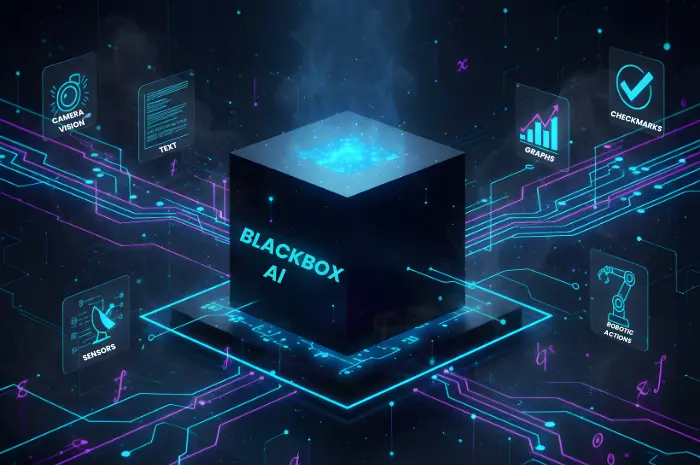Large language models (LLMs) are everywhere in the news. From chatbots that help customers to tools that write reports automatically, they promise big changes for businesses. But the reality is clear: just having the technology isn’t enough. Success comes from using it smartly and managing it well.
This is where hiring large language model experts makes a difference. For businesses dealing with complex data, rules, and workflows, consultants help turn AI tools into real business value. In this post, we’ll look at how aLLM consulting company helps businesses save time, boost innovation, and stay competitive, without wasting effort on experiments that don’t go anywhere.
Why Businesses Should Take LLM Consulting, Instead of DIY

1. Turning Curiosity Into Strategy
Most enterprises today are curious about developing large language models. They’ve read about ChatGPT, Gemini, or Claude; perhaps a few teams are already testing them internally. But curiosity doesn’t equal strategy.
An experienced LLM consultant helps leadership teams move from “What can this do?” to “What should this do for us?”. Through structured discovery workshops, consultants assess:
- Core pain points that LLMs could address
- Data readiness and integration complexity
- Compliance, governance, and security requirements
- Business KPIs that could be tied to measurable ROI
This structured approach stops “AI tourism”, short trials that never grow, and puts your investment where it really matters.
2. Customizing Models to Fit the Enterprise
Public LLMs like GPT-4 or Claude can be incredibly powerful, but they aren’t built around your business’s data, terminology, or workflows. For enterprises, generic responses won’t cut it.
The best consultants bring the technical and architectural know-how to build and fine-tune LLM models for enterprise contexts. This includes:
- Retrieval-Augmented Generation (RAG): Connecting LLMs to internal knowledge bases or document repositories so answers reflect company-specific information.
- Fine-Tuning: Training models on proprietary data to capture brand tone, product expertise, or domain vocabulary.
- Integration: Embedding LLMs into existing enterprise systems, CRM, ERP, or intranet search, so employees access insights where they work.
3. Building Governance and Risk Frameworks
Top LLM consulting companies specialize in designing robust risk-management frameworks that balance innovation with responsibility. They address:
- Data privacy: How internal and customer data are stored, masked, and accessed by the model.
- Model governance: Version control, audit trails, and monitoring for drift or hallucinations.
- Compliance: Aligning LLM use with sector-specific standards such as GDPR, HIPAA, or FINRA.
- Ethics and bias mitigation: Ensuring model outputs are transparent and explainable.
4. Accelerating Implementation and ROI
Deploying an enterprise-grade LLM involves is unlike traditional software development. Enterprises need to integrate multiple data sources, manage infrastructure, and train users, without disrupting operations.
Consultants streamline this process through structured implementation roadmaps:
- Pilot phase: Identify a single high-value use-case (e.g., automating RFP summaries or customer support responses).
- Proof of value: Measure key metrics, time saved, accuracy improvement, cost reduction.
- Scaling: Roll out across departments, embedding in workflows with clear documentation and guardrails.
- Continuous optimization: Monitor usage, retrain models as data evolves, and measure ongoing ROI.
This phased model reduces risk while demonstrating tangible results early. According to various sources, enterprises using LLMs can automate up to 45% of repetitive tasks and cut costs by roughly 20%. But hitting those numbers depends on strategic rollout and adoption
5. Empowering Teams Through Change Management

Technology adoption fails not because the tools don’t work, but because people resist change. Large language models alter how teams interact with information, make decisions, and even define expertise.
Consulting partners bring structured change-management programs that help teams adapt. They provide:
- Hands-on training tailored to specific job roles
- Communication strategies to build trust and reduce fear of automation
- Governance playbooks and internal ambassadors who maintain best practices
Rather than dropping a new tool and walking away, consultants embed enablement into the process, helping teams use LLMs effectively, not just have access to them.
Enterprises that treat AI adoption as organizational change, not just IT deployment, see faster adoption and stronger ROI.
Also Read: LLM vs. LCM
6. Scaling Innovation Across the Enterprise
Once the first few use-cases of LLMs succeed, consultants help enterprises turn isolated wins into system-wide transformation.
Consultants build Centers of Excellence (CoEs) or governance councils to coordinate projects, standardize best practices, and share learning across departments. They help executives:
- Prioritize new opportunities for automation and decision-support
- Establish budget and ownership models for LLM initiatives
- Build a culture of responsible experimentation
With proper consulting support, LLMs evolve from departmental experiments into enterprise infrastructure.
7. Protecting Intellectual Property and Competitive Edge
Enterprise data is one of its most valuable assets. Without expert guidance, connecting sensitive data to public LLM APIs could expose IP, customer information, or trade secrets.
Consultants ensure proper data isolation, access control, and IP protection through private deployments or custom fine-tuned models. This is why many enterprises are now pursuing “Enterprise LLMs”, customized versions trained securely on internal data.
8. Measuring Impact and Sustaining Value
Consulting firms establish performance dashboards that track how well the new LLM solutions are performing. They benchmark improvements against initial KPIs, ensuring ROI remains transparent and defensible to executives.
Typical metrics might include:
- Average time saved per process
- Reduction in manual documentation
- Increase in customer satisfaction or response speed
- Cost per query compared to human effort
By embedding these measurement systems early, consultants help enterprises treat LLMs as long-term investments rather than one-off experiments.
Also Read: Your ML Model is Great, But Can It Survive the Real World?
Choosing the Right LLM Consulting Partner
Not every consultant is ready for the LLM era. The right partner combines strategic insight, technical fluency, and ethical rigor. When evaluating consulting firms, enterprises should ask:
- Do they understand our industry and regulatory environment?
- Can they demonstrate successful LLM implementations?
- How do they approach data privacy, bias, and model governance?
- Will they train internal teams, not just deliver code?
- How do they measure success and how will we own the outcomes?
Avoid vendors who push pre-built AI products without context. The best LLM consultants act as strategic partners, not tool resellers. Their role is to make your enterprise self-sufficient in leveraging LLMs over time.
Conclusion
LLMs offer powerful capabilities, but realizing their full potential requires careful planning, governance, and support. In the enterprise world, adopting them responsibly and effectively takes more than enthusiasm. It takes the right strategy and guidance. The experts in both LLM consulting and development can help you move in the right direction.
FAQs
What exactly is LLM consulting, and how is it different from just buying an AI model?
LLM consulting goes beyond providing a pre-built AI model. Consultants help you identify the right business use-cases, integrate the model with existing workflows, ensure compliance, and measure ROI. It’s about turning AI technology into tangible business value rather than just experimenting with it.
How do I know if my company actually needs LLM consulting?
If your enterprise struggles with integrating AI into workflows, lacks internal AI expertise, or wants to ensure ROI from LLM projects, consulting is valuable. Consultants help you avoid costly mistakes, prioritize the right projects, and scale solutions effectively.
How do consultants help with compliance and data security?
LLM consultants design frameworks that follow industry regulations and internal data governance policies. They help manage sensitive data, set up audit trails, and implement monitoring to prevent misuse or breaches.






